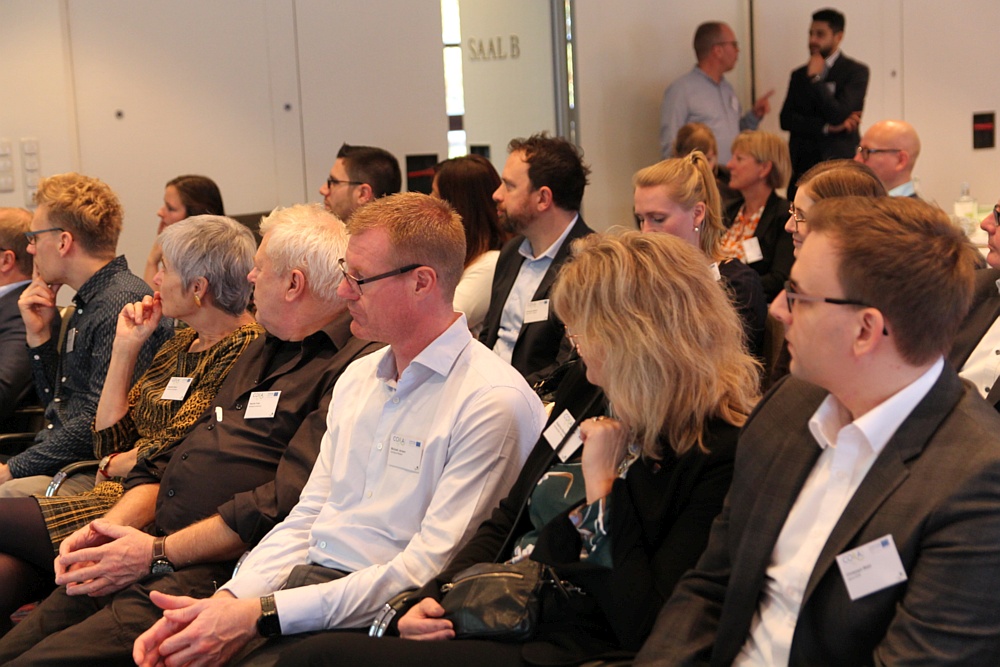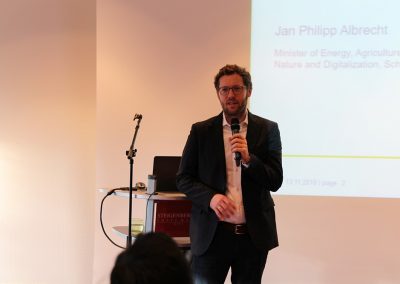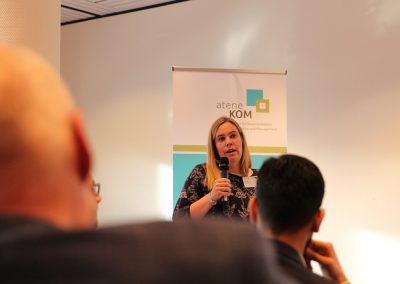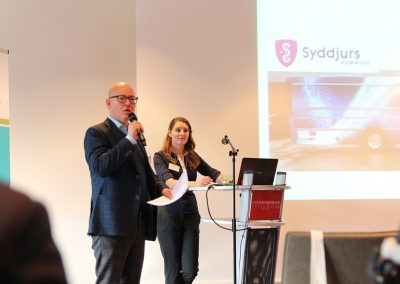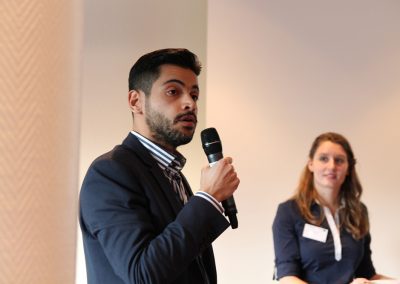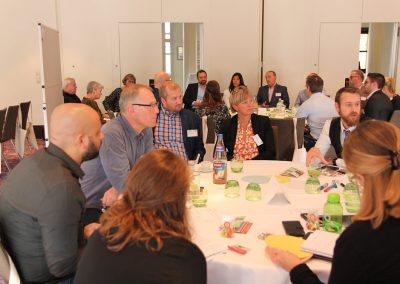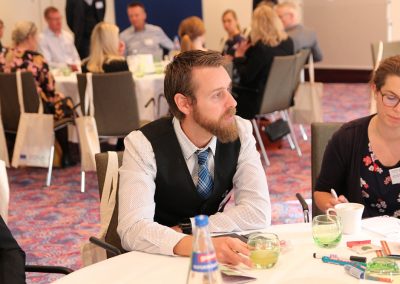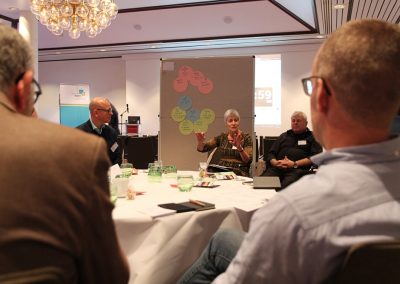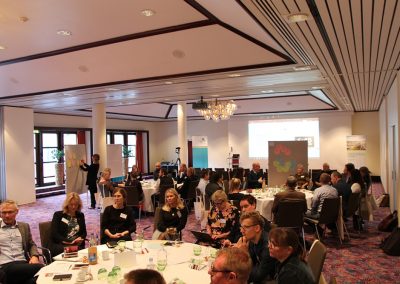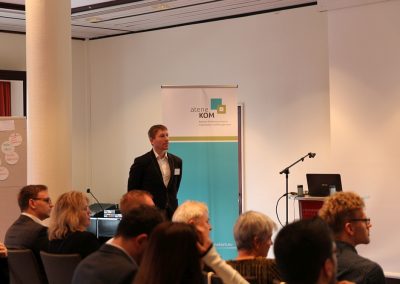The annual conference of the CORA (COnnecting Remote Areas with digital infrastructure and services) project took place in Kiel on November 13, 2018.
Jan Philipp Albrecht (Minister for Energy Transition, Agriculture, Environment, Nature and Digitalisation of the State of Schleswig-Holstein) welcomed the CORA project partners and focused on connectivity as an important basis for the digital transformation of rural regions in Schleswig-Holstein. The minister emphasised the importance of a future-proof broadband infrastructure and digital services in rural areas as the backbone for smart regions in northern Germany and the entire North Sea region.
CORA story
The conference initially focused on the “CORA story”. The project background, concept, objectives and pilot activities were presented with the active involvement of all project member regions. It became clear that the digital divide is a common challenge within the North Sea region that affects all regions equally.
During the conference, the participants discussed the most important dimensions of the CORA project. There were three thematic focal points, each focusing on one dimension of the CORA methodology. The interactive discussions aimed to engage CORA stakeholders and use their insights to identify solutions for the following topics:
- Removing barriers to the availability and use of internet services in rural areas
- Improving the level of digital skills in the municipalities
- Establishment, operation and networking of successful local and regional hubs in rural areas
After three intensive discussion rounds, several recommendations for key measures and training courses were summarised and presented to the stakeholders. These will be integrated into the CORA e-learning platform following the conference.
Examples from Germany
In the second part of the conference, three example projects from Germany were presented, each focusing on one dimension of digital transformation.
- Dimension One: Future-proof digital infrastructure
Christian Zieske (Federal Broadband Office) gave an insight into the federal broadband funding programme, which aims to implement a nationwide, future-proof digital infrastructure. - Dimension two: Future-proof digital services
Mathias Phillip (Amt Hüttener Berge) presented the integrated concept of the Hüttener Berge. The aim is to create a digital service offering for local communities in the region as part of their digital agenda. - Dimension three: Future-proof digital skills
Marc Richau (City of Norderstedt) presented the digital service planning and delivery approach for Norderstedt and emphasized the importance of digital skills for municipalities and local businesses as well as the municipalities themselves.
Results
The outcome of the discussions was the confirmation of the CORA project approach to creating smart regions and bridging the digital divide in rural areas. All participants want a dynamic environment for digital change in rural areas. Broadband infrastructure, responsive digital services and digital skills in municipalities, companies and authorities are the keys to this.
The CORA partners took part in the project partner meeting in the run-up to the conference. On November 12, they exchanged information on the progress of their activities. The day after the conference, a one-day excursion to Amt Hüttener Berge followed with the aim of presenting the planned digital services for tourism purposes in the region.
CORA background
The digital divide in the rural areas of the North Sea region limits their attractiveness for families and businesses. This can be described as a market failure, as infrastructure investments are not made to a sufficient extent due to high financial risks. As a result, rural areas often need external incentives and support when it comes to technological implementation and digital transformation. With this in mind, the CORA project helps municipalities to identify their common challenges and enables them to share experiences and test innovative solutions to create an advanced digital environment. During the project period until 2020, ten regions will work on one or more dimensions of digitalisation according to their local priorities.
Cover photo: Project partners and stakeholders, CORA annual conference, Kiel, November 13, 2018.
Photo credits: aconium GmbH

